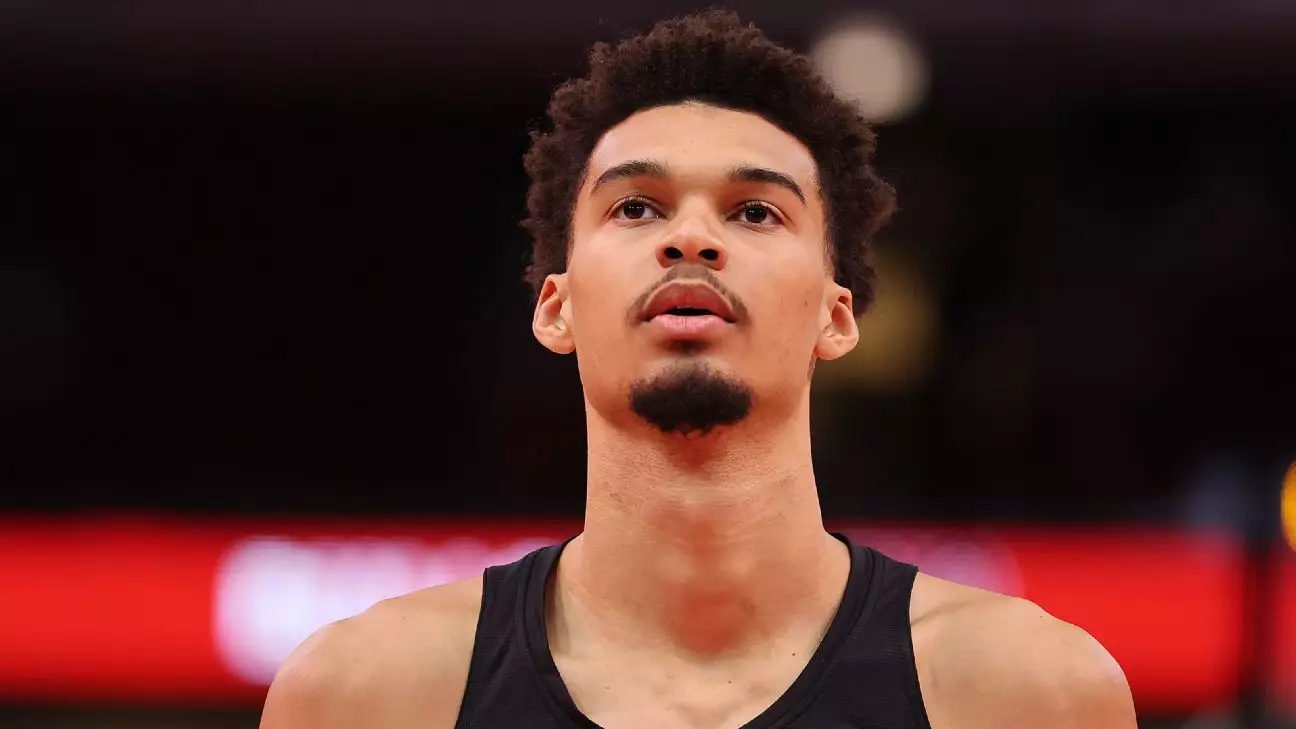In a significant blow to the San Antonio Spurs, rookie sensation Victor Wembanyama is expected to sit out the rest of the season due to a diagnosis of deep vein thrombosis in his right shoulder. This troubling news was officially disclosed by the team on Thursday, following Wembanyama’s return from the All-Star Game. Deep vein thrombosis, characterized by the formation of a blood clot in a deep vein, poses serious health risks and typically requires blood-thinning treatment, making participation in physically demanding sports like basketball exceptionally risky. The Spurs management emphasized that they will keep the public informed about Wembanyama’s condition as it evolves.
According to multiple sources, including ESPN’s Shams Charania, Wembanyama began to experience symptoms soon after the All-Star break but initially brushed them aside, expecting that a couple of days of rest would suffice to return him to optimal health. The persistence of his symptoms led to a series of medical evaluations that ultimately revealed the underlying issue of a blood clot. This highlights a concerning aspect of sports in general: young athletes often downplay their health issues in the hope of rapid recovery. Wembanyama’s experience serves as a cautionary tale about the importance of prioritizing long-term health over short-term gains.
The gravity of the situation wasn’t lost on the Spurs’ roster, particularly for veteran point guard Chris Paul. In his remarks, Paul conveyed a deep sense of loss—not just for Wembanyama’s exceptional contributions on the court, but also for his intangible assets, such as camaraderie and passion for the sport. Paul pointed out that while basketball defines part of their lives, it should not overshadow the larger perspectives on health and well-being. His insistence that “you can’t replace Vic” underscores the unique role Wembanyama plays in the team dynamics, where his absence will likely have a ripple effect affecting both morale and performance.
Prior to this disappointment, Wembanyama had carved out a phenomenal season for himself, boasting averages of 24.3 points, 11.0 rebounds, and an astounding 3.8 blocks per game. The most remarkable number, however, may be that he attempted over 400 three-pointers before the All-Star break, a feat unprecedented in the league’s history for a player of his size and skillset. Moreover, his ability to dominate defensively led him to become the frontrunner for accolades like the Defensive Player of the Year award—an honor he will now be ineligible to receive due to not meeting the 65-game minimum.
In the wake of Wembanyama’s injury announcement, the landscape for major awards has shifted dramatically within the league. With Wembanyama considered a strong candidate for accolades, including Defensive Player of the Year, his absence opens the door for other contenders. Miami’s Jaren Jackson Jr. has already seen his odds improve significantly, indicating the impact of Wembanyama’s health on the entire league’s awards context. This situation serves to demonstrate how swiftly fortunes can change in sports, and how a young player’s health can influence not just his team, but the entire competitive framework of the NBA.
Wembanyama’s injury marks a troubling season for the Spurs, exacerbated by the earlier health issues of esteemed coach Gregg Popovich, who is currently on leave after suffering a stroke. This combination of losing both a key player and a respected leader illustrates a tumultuous period for the franchise. The Spurs will need to band together and find ways to compensate for the absence of their rookie star, both on and off the court.
Victor Wembanyama’s injury is a multifaceted loss for the San Antonio Spurs, affecting not just their immediate performance but also the franchise’s long-term aspirations. While the basketball world watches closely, it remains to be seen how the Spurs will navigate these challenges, emphasizing health as paramount while desperately seeking to fill the void left by one of the game’s rising stars.


Leave a Reply